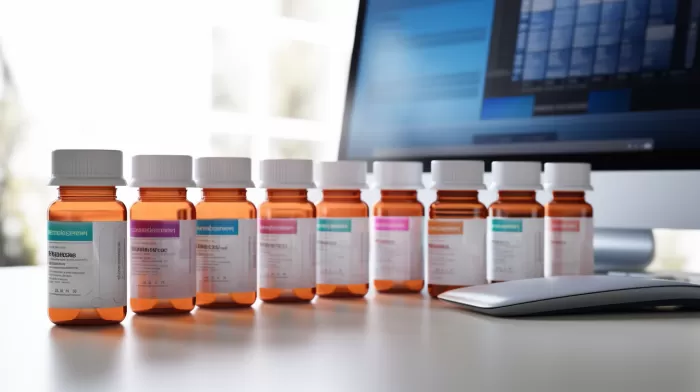Looking for a cheap high that might also be lethal? The internet is increasingly becoming a go-to source for drug abusers searching for medications, leading to a significant rise in hospital admissions. Researchers from Massachusetts General Hospital (MGH) and the University of Southern California (USC) have found that online pharmacies that provide drugs without prescriptions are contributing to the rapid increase in drug abuse.
The nationwide survey conducted by these researchers showed that hospital admissions for drug abuse increased by 1% with every 10% increase in the availability of high-speed internet service. This growing issue of prescription drug abuse, particularly on college campuses where these drugs are replacing illegal substances, highlights the severity of the problem.
Dana Goldman, Ph.D., a researcher and director of the Schaeffer Center for Health Policy and Economics at USC, suggests that “Internet growth may partly explain the increase in prescription drug abuse, since it is well known that these drugs are easily available online.” Narcotic painkillers are the most problematic medications, followed by anti-anxiety drugs, stimulants, and sedatives.
The anonymity and convenience provided by the internet have enabled easy access to prescription drugs without the need for a doctor’s visit or prescription. Many of these online pharmacies are based in countries with minimal regulation, and they may ship medications that are counterfeit, expired, or improperly stored. Not only does this raise public health concerns, but it also poses challenges in combatting rising drug abuse rates.
Prescription drug abuse can lead to numerous health issues, from mild side effects to fatal overdoses. Abusing drugs like opioids and central nervous system (CNS) depressants can result in addiction, altered mental states, respiratory distress, and seizures. Stimulants, on the other hand, can cause heart elevation, hypertension, and even stroke.
Most online pharmacies operate illegally; they don’t require prescriptions and don’t apply safety standards for the storage and distribution of medications. Purchasing drugs through these channels increases the risk of obtaining counterfeit products or substances with unknown ingredients, which can cause severe health complications or even death.
Governments and health organizations are taking measures to prevent online drug dealing. Legitimate online pharmacies must abide by strict rules and regulations, but many of the rogue pharmacies operate outside of these guidelines. Some strategies include maintaining a public list of certified online pharmacies, creating awareness campaigns, and improving international cooperation to address the issue.
However, the responsibility to avoid these illegal channels falls on individuals as well. To ensure safe access to prescription drugs, people should only purchase from reputable online pharmacies that require valid prescriptions. Additionally, reaching out to healthcare professionals for guidance on medication and seeking help for addiction issues can make a significant difference in reducing dependence on prescription drugs.
The ease of purchasing prescription drugs on the internet has led to an unprecedented rise in drug abuse cases, putting immense pressure on healthcare systems. Besides the health risks, it may also inadvertently promote an addictive mindset. Individuals who start with abusing prescription drugs may eventually turn to illegal substances to satisfy their cravings or increase the intensity of their highs.
Recognizing early signs of addiction can help curb this issue. Warning signs include a constant need for drugs to achieve a sense of well-being, continued use despite negative consequences, and developing a tolerance for drugs, requiring higher doses to achieve the same effect.
Combatting this issue requires a concerted effort from governments, healthcare providers, the pharmaceutical industry, and individuals. Strengthening regulations, raising awareness about online pharmacy risks, and encouraging people to make informed choices when purchasing prescription drugs can contribute to reducing the harm caused by unchecked drug abuse.
In conclusion, the internet has emerged as a significant contributor to the increase in prescription drug abuse. The ease with which drugs can be accessed online without prescriptions has given many people the opportunity to misuse these substances, leading to potentially dangerous personal and public health consequences. It’s crucial for individuals to take responsibility for their health and wellness by only purchasing prescription drugs through legitimate channels and seeking professional help when addiction becomes a concern. Additionally, governments and healthcare organizations must work together to implement and enforce strategies to put an end to this growing problem.



